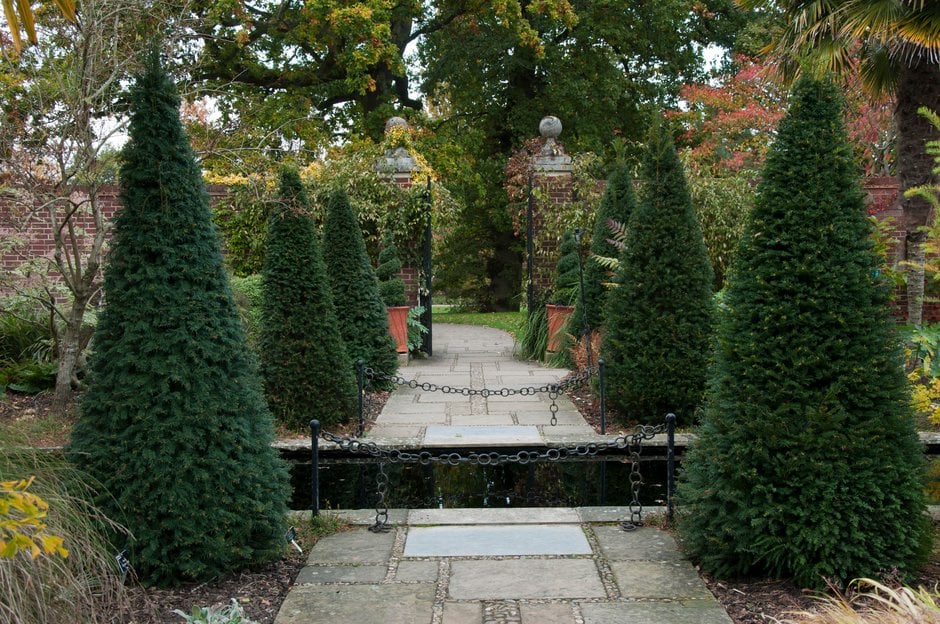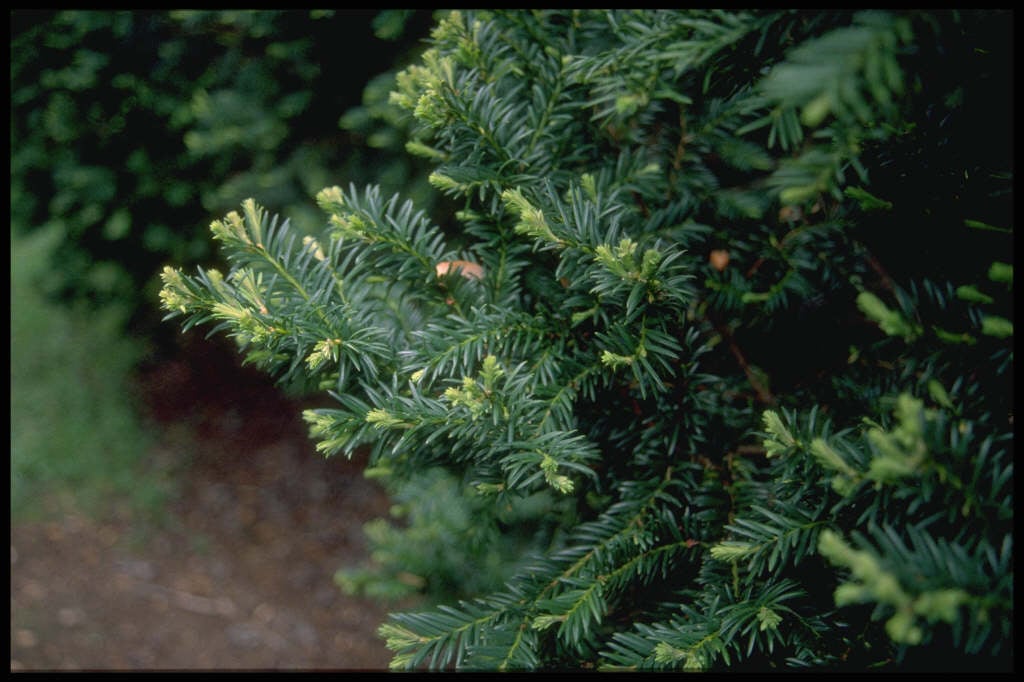Taxus baccata
common yew
A medium-sized bushy evergreen tree with narrow, leathery, very dark green leaves arranged in two rows on the shoots, and insignificant flowers followed on female plants by fleshy red fruits
Size
Ultimate height
Higher than 12 metresTime to ultimate height
20–50 yearsUltimate spread
Wider than 8 metresGrowing conditions
Moisture
Well–drainedpH
Acid, Alkaline, NeutralColour & scent
| Stem | Flower | Foliage | Fruit | |
| Spring | Yellow | Green | ||
|---|---|---|---|---|
| Summer | Green | |||
| Autumn | Green | Red | ||
| Winter | Green |
Position
- Full shade
- Full sun
- Partial shade
Aspect
South–facing or North–facing or East–facing or West–facing
Exposure
Exposed or Sheltered Hardiness
H7Botanical details
- Family
- Taxaceae
- Native to GB / Ireland
- Yes
- Foliage
- Evergreen
- Habit
- Bushy
- Potentially harmful
- TOXIC if eaten. Wear gloves and other protective equipment when handling. TOXIC to pets if eaten - see the HTA guide to potentially harmful plants for further information and useful contact numbers
- Genus
Taxus are small evergreen trees or large shrubs of rounded habit, with dense, linear leaves, insignificant flowers and, on female plants, conspicuous fleshy red arils surrounding the solitary seeds
- Name status
Correct
- Plant range
- Europe, W Asia, N Africa
How to grow
Cultivation
Grow in any well-drained soil. Will tolerate exposure, dry soils and urban pollution. Good specimen plant for topiary and hedging
Propagation
Propagate by seed or semi-hardwood cuttings
Suggested planting locations and garden types
- Low Maintenance
- Hedging and screens
Pruning
No regular pruning necessary, but can be trimmed and shaped when required
Pests
May be susceptible to tortrix moth, vine weevil, gall mites and scale insects
Diseases
May be susceptible to phytophthora root diseases and honey fungus (rarely)
Love gardening
Sign up to receive regular gardening tips, inspiration, offers and more
View our Privacy Policy
Get involved
The Royal Horticultural Society is the UK’s leading gardening charity. We aim to enrich everyone’s life through plants, and make the UK a greener and more beautiful place.

